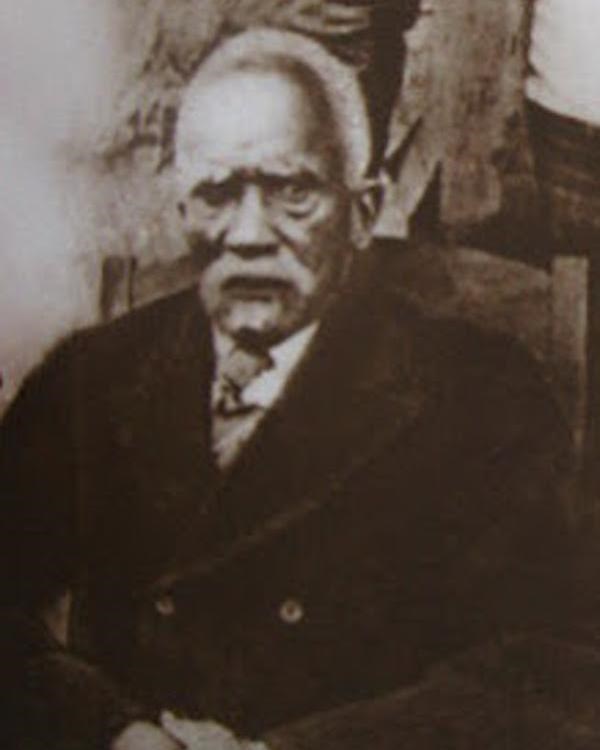Last updated: February 20, 2023
Person
Irving Bass

Angela Walton-Raji
Irvin Bass was the oldest son of Louis Mitchell and Susan Bass from Sevier County, Arkansas. He was born in 1869 in the early years of his parents' freedom. Bass's youth was spent in the small timber land community of Clear Creek, in Sevier County. In the early years of rural southwest Arkansas, formerly enslaved families worked their way through the maze of a hostile south. His mother Susan's family line, formerly enslaved by the Houston family of Alabama, migrated to Arkansas. Bass's father, originally from Tennessee, was taken to Arkansas after his Tennessee enlsaver died.
Opportunities were limited for children of former slaves in the Deep South, especially if there were no schools provided by the Freedmen’s Bureau. However, Bass's interest in education as well as in becoming a landowner, came from his father. His father had been enslaved by Henry Pride in Sevier County and when freedom came, he chose a different name than that of Pride. He chose to be known as Louis Mitchell Bass, honoring his own family from Tennessee.

Louis Mitchell Bass
Photo Credit: Angela Walton-Raji
In 1865, four years before Irving was born, Louis Mitchell’s name was placed on a labor contract through the Freedmen’s Bureau, with the former enslaver. The record stated that he agreed to work for “board, clothing and medical attention.” Interestingly, no monetary payment was part of that initial agreement. However, Louis Mitchell was still able to work, grow his own crops, and saved enough money to have a small amount of personal property during those years. The 1870 Federal Census of Sevier Arkansas indicated that Lewis M. Bass had property valued at $150 at the time.
In 1882, when Irving Bass was 12 years old, his father made an up-front cash payment at the Camden, Arkansas General Land Office to patent 40 acres of land under the Sale-Cash Entry authority for available public lands. Bass saw the advantage that his father had as a landowner, and this inspired him to do the same someday.
Bass knew his father could manage more if he could help keep the books on the estate. Bass wanted to manage their own accounts without relying on others who could read. Irving left home for an education. He went to school in Pine Bluff, Arkansas, at Branch Normal school. During the summer months he went home to Sevier County to work the land with his father, and in the colder months he went away for school.
In 1887, Bass settled on 40 acres of land in Sevier County, Arkansas. He built a small log house of two rooms all the while going back and forth to pursue an education. On March 20th, 1890, at the age of 26, Bass filed Homestead Application #15000 for the land he resided on.
After Bass completed his education, he returned to his claim to continue farming and became a schoolteacher in a small country school established for black children in Horatio, Arkansas. Some of his younger siblings would speak about their first teacher being their older brother, Irving Bass.
In 1895, on Bass's Testimony of Claimant paperwork he responded to the question of whether he had resided on the land consecutively as, “I was off the place for the purpose of going to school, no more than six months at a time.” He also noted that he worked “12 to 20 acres for 5 seasons”. Bass signed his name on all of his homestead documents.
Bass's land was located in the W ½ of the NW ¼ and the SE ¼ of the NW ¼ of Sec 7, Township 10 S, Range 31, W. Four people witnessed for his Final Proof. They were his father, Louis Mitchell Bass; his half-brother John Martin; and close associates Henry Dillahunty and James Rice.
Bass and his father worked together on all of the family-owned lands. An interview with one of Bass's sisters in 1878 revealed that other families rented small parcels of Bass land. In time, Irving Bass owned 120 acres of land that he both farmed and rented.
On February 17, 1901, Bass married Eliza Martin who was part of a large family of Martins in the area. They raised their children on the family land in Horatio where they lived well into the 1940s.
The children of Irving Bass would later migrate westward to Arizona and California, and after he retired from teaching, he joined the family out west where he and Eliza spent their remaining years. The life of Irving Bass is one of a young boy with vision who accomplished his goals against the odds. The descendants of the family went forward from the nurturing that began on Arkansas soil, on a small parcel of land of the homesteader, Irving Bass.
Patent Details - BLM GLO Records
~ Contribute by Angela Walton-Raji
Angela Walton-Raji is a nationally known professional genealogist, author and writer. She has several special areas of focus including Oklahoma Freedmen, documenting US Colored Troops west of the Mississippi. She is an accomplished writer and blogger, and has authored three books pertaining to Freedmen from the Five Tribes of Oklahoma. She has extensively documented her homesteading family in southwestern Arkansas, in addition to her work on families from eastern Oklahoma.
Professionally, she worked in higher education for over 30 years, retiring from the University of Maryland, Baltimore County as Director of Graduate School Recruitment. She holds a Bachelor of Arts in Spanish from St. Louis University, and a Master of Education from Antioch University. She lives in Maryland where she continues to research and write.
